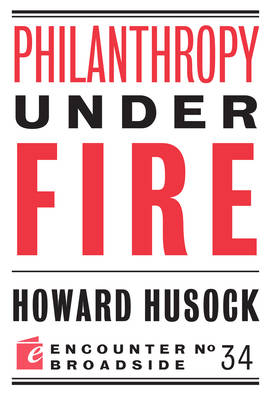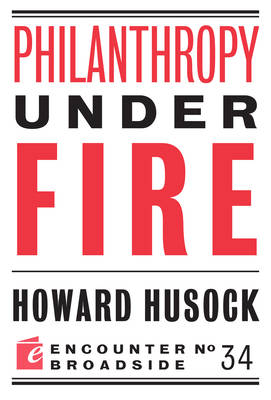
- Afhalen na 1 uur in een winkel met voorraad
- Gratis thuislevering in België vanaf € 30
- Ruim aanbod met 7 miljoen producten
- Afhalen na 1 uur in een winkel met voorraad
- Gratis thuislevering in België vanaf € 30
- Ruim aanbod met 7 miljoen producten
Zoeken
€ 7,45
+ 14 punten
Omschrijving
In Philanthropy Under Fire, author Howard Husock defends the American tradition of independent philanthropy from significant political and intellectual challenges which threaten it today. Although the U.S. continues to be the most charitable nation in the world, serious efforts seek to discourage traditional, personal charitable giving by changing the tax code, and directing philanthropy toward causes chosen by government. Some voices seek to narrow the very definition of philanthropy to include only direct redistribution of income from rich to poor. In contrast, Mr. Husock broadly defends philanthropy's causes--from the food pantry to the art museum to the university science lab--as both a source of effective new ideas and as a core aspect of democracy and liberty. In a new and original argument, he asserts that having broad impact does not require a marriage of philanthropy and government. Instead, he says, private programs growing out of the values held by their leaders--and imbued with those values--can have a wide impact through their influence on society's norms. In this sense, the good that private philanthropy does for American society can far transcend the good that it does for its immediate recipients.
Specificaties
Betrokkenen
- Auteur(s):
- Uitgeverij:
Inhoud
- Aantal bladzijden:
- 48
- Taal:
- Engels
- Reeks:
- Reeksnummer:
- nr. 34
Eigenschappen
- Productcode (EAN):
- 9781594037382
- Verschijningsdatum:
- 17/09/2013
- Uitvoering:
- Paperback
- Formaat:
- Trade paperback (VS)
- Afmetingen:
- 119 mm x 173 mm
- Gewicht:
- 68 g

Alleen bij Standaard Boekhandel
+ 14 punten op je klantenkaart van Standaard Boekhandel
Beoordelingen
We publiceren alleen reviews die voldoen aan de voorwaarden voor reviews. Bekijk onze voorwaarden voor reviews.











